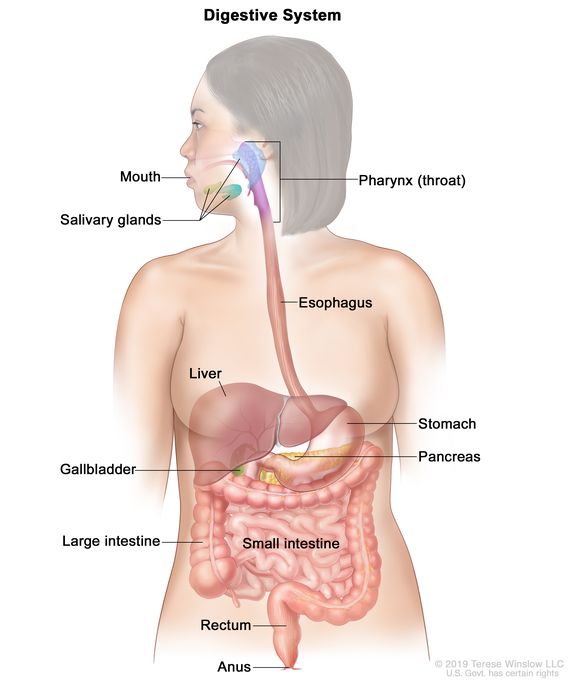gastrointestinal system
(GAS-troh-in-TES-tih-nul SIS-tem)
The organs that take in food and liquids and break them down into substances that the body can use for energy, growth, and tissue repair. Waste products the body cannot use leave the body through bowel movements. The gastrointestinal system includes the mouth, pharynx (throat), esophagus, stomach, small intestine, large intestine, rectum, and anus. It also includes the salivary glands, liver, gallbladder, and pancreas, which make digestive juices and enzymes that help the body digest food and liquids. Also called digestive system.
